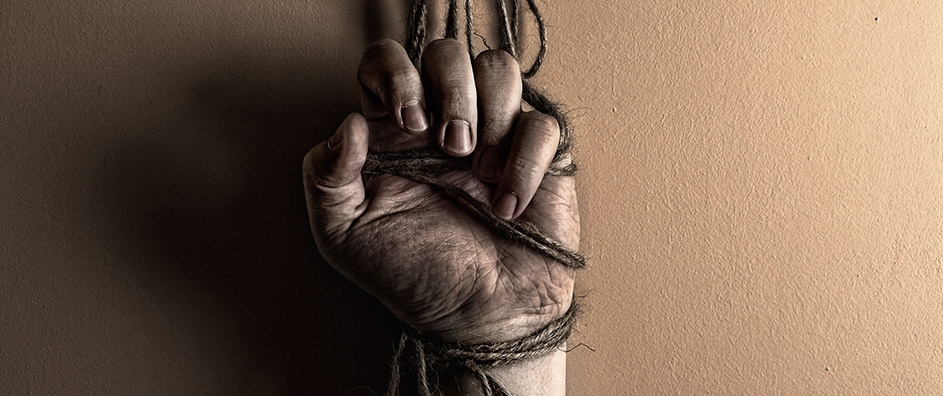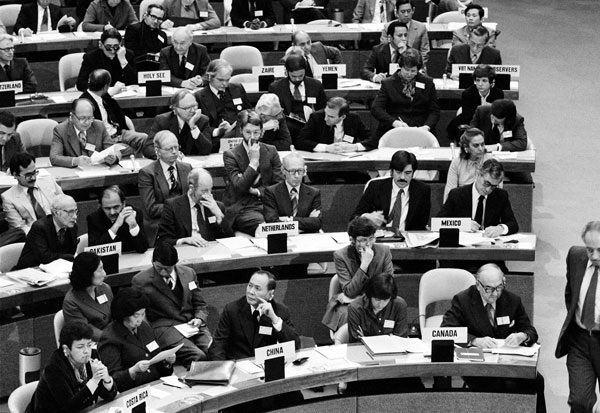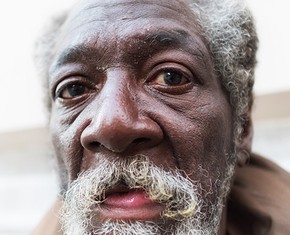The views expressed in our content reflect individual perspectives and do not represent the authoritative views of the Baha'i Faith.
Torture, according to the Baha’i teachings, has absolutely no place in a civilized world. Barbaric, inhumane and morally wrong by every religious, moral and humanitarian standard, it poisons civil society and the rule of law. No citizen remains safe in any government that allows torture.
Perhaps that view of torture originates from the pervasive Baha’i reaction to the terrible torture of Baha’u’llah, the founder of the Baha’i Faith. The Baha’is themselves have suffered innumerable tortures for their beliefs; and even today innocent, imprisoned Baha’is in Iran undergo torture because they refuse to recant their Faith. Baha’is personally recoil at violence toward other human beings, but have an even stronger revulsion toward the intentional infliction of pain and injury on people for any reason.
That may have something to do with the fact that Baha’i institutions, including the Universal House of Justice, various Baha’i National Spiritual Assemblies and the Baha’i International Community have all joined with governmental bodies like the United Nations to vigorously oppose and outlaw torture—and any physical or psychological violation of human rights that even resembles torture:
Disability can be caused by the gamut of inhuman conduct perpetrated by human beings against one another. For that very reason, the international community must take aim at all human rights violations, for they can all result in the permanent mental or physical handicap of human beings. We fully agree with the Special Rapporteur’s observation, in paragraph 14 of his report, that any acts contrary to international law and violative of mental or physical integrity should be proscribed, not only those acts that rise to the level of torture or other cruel, inhuman or degrading treatment or punishment. – August 1988, the Baha’i International Community.
Baha’i institutions have long supported the United Nations Convention against Torture, and signed on as supporters of that international human rights treaty early in its first stages of development, long before the United Nations adopted the text of the Convention in 1984 and it became international law in 1987.
The Universal House of Justice, the democratically-elected international Baha’i administrative body, issued this statement regarding the Torture Convention and several other similar U.N. treaties in 1985:
The increasing attention being focused on some of the most deep-rooted problems of the planet is yet another hopeful sign. Despite the obvious shortcomings of the United Nations, the more than two score declarations and conventions adopted by that organization, even where governments have not been enthusiastic in their commitment, have given ordinary people a sense of a new lease on life. The Universal Declaration of Human Rights, the Convention on the Prevention and Punishment of the Crime of Genocide, and the similar measures concerned with eliminating all forms of discrimination based on race, sex or religious belief; upholding the rights of the child; protecting all persons against being subjected to torture; eradicating hunger and malnutrition; using scientific and technological progress in the interest of peace and the benefit of mankind — all such measures, if courageously enforced and expanded, will advance the day when the spectre of war will have lost its power to dominate international relations. – The Promise of World Peace, p. 3.
To “courageously enforce and expand” such treaties, Baha’is believe, each nation must be held to one unified standard of international justice. Because the Torture Convention requires every country in the world to “take effective measures to prevent torture within its borders,” and prohibits nations from “transporting people to any country where there is reason to believe they will be tortured,” the recent United States Senate report on torture has brought the issue into the harsh glare of worldwide scrutiny, and created enormous controversy and debate about the place of torture in modern civilization.
Officially known as the Committee Study of the Central Intelligence Agency’s Detention and Interrogation Program, the report comes from the bipartisan Senate Select Committee on Intelligence. It reveals details about the CIA’s Detention and Interrogation Program and its use of various forms of torture, otherwise described as “enhanced interrogation techniques,” on detainees between 2001 and 2006.
The report created an international furor. Since its release, many have called for the prosecution of American elected and appointed leaders who authorized and approved torture; who authorized and approved the CIA’s “extraordinary rendition” torture-by-proxy program; and who publicly denied that heinous acts like waterboarding constituted torture. The report and the reactions it sparked around the world all raise the question: What is torture? Legally, the U.N. Convention defines it this way:
…any act by which severe pain or suffering, whether physical or mental, is intentionally inflicted on a person for such purposes as obtaining from him, or a third person, information or a confession, punishing him for an act he or a third person has committed or is suspected of having committed, or intimidating or coercing him or a third person, or for any reason based on discrimination of any kind, when such pain or suffering is inflicted by or at the instigation of or with the consent or acquiescence of a public official or other person acting in an official capacity.
However—despite international law and widespread denunciation of these brutal acts, torture still goes on. Amnesty International has documented its use in at least 141 countries. How can we stop it?
In the larger sense, Baha’is believe that developing and inculcating a global moral and spiritual code which considers torture reprehensible will provide the best long-term, systemic solution. Until that happens, only the prosecution of the perpetrators of torture can halt this abhorrent practice. The International Criminal Court, originally chartered to prosecute such violations of international law, is now considering whether to charge the U.S. leaders who ordered, condoned and carried out torture.
If that occurs, the United States—which unfortunately is not currently a signatory to the ICC protocols—will face a hard and unprecedented decision. The country and its leadership will need to determine whether to turn over its former elected and appointed officials to be tried by an international court, abiding by the international laws and treaties the United States itself has signed and ratified.
The Baha’i teachings, which long ago called for an international criminal court and equal justice for all, urge humanity to take that enlightened and morally imperative step toward a unified global civilization where everyone—including the world’s most powerful rulers—must abide by the rule of law.

















Comments
Sign in or create an account
Continue with Googleor